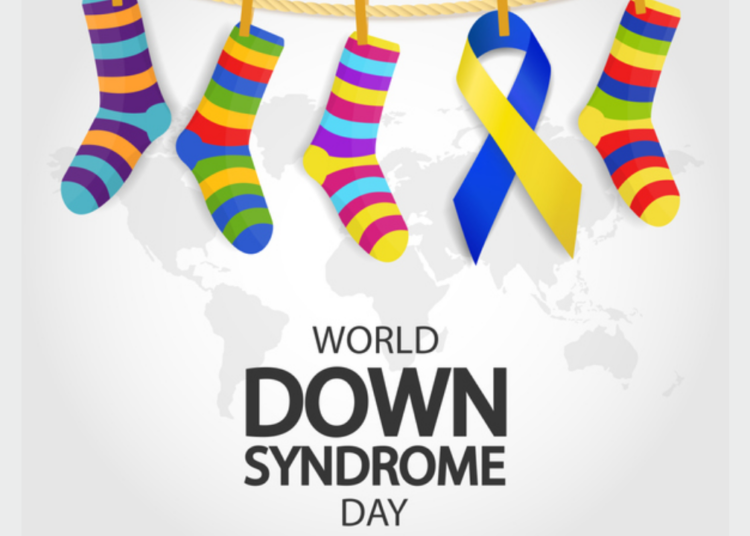Down Syndrome Day is observed annually on March 21st to raise awareness about this genetic condition and promote acceptance and inclusion of individuals with Down syndrome.
In Nigeria, the day is an opportunity to highlight the challenges faced by people with Down syndrome and their families, and to advocate for their rights and well-being.
Down syndrome is a genetic condition that occurs when a person has a full or partial extra copy of chromosome 21. This additional genetic material can cause developmental delays, intellectual disability, and physical features such as a flattened facial profile, small head size, and upward slanting eyes.
According to the World Health Organisation (WHO), Down Syndrome affects approximately 1 in 1,000 live births worldwide. In Nigeria, the prevalence rate of Down syndrome is unknown due to a lack of data.
The federal government has a responsibility to ensure that people with Down syndrome are not discriminated against and that their rights are protected.
However, despite some efforts by the government and non-governmental organisations to improve the lives of people with Down syndrome, they still face numerous challenges, including discrimination, stigmatisation, lack of access to education, health care, employment, and other basic human rights.
In the considered opinion of this Newspaper, this is unacceptable and goes against the principles of equality and human dignity that are enshrined in the Nigerian constitution.
One of the biggest challenges facing people with Down syndrome in Nigeria is the lack of awareness and understanding of the condition. Many Nigerians do not know what Down syndrome is, and those who do often have misconceptions about the condition.
Sadly, in some communities in Nigeria, children with special needs like the Down syndrome are seen as carriers of bad luck or possessed by some demons.
This lack of awareness leads to discrimination and stigmatisation, which in turn affects the ability of people with Down syndrome to live fulfilling lives.
When the world marks Down Syndrome Day, it is an opportunity for the government and society as a whole to take action to support and empower individuals with Down syndrome and their families. This includes ensuring that they have access to quality healthcare, education, and employment opportunities, as well as promoting awareness and understanding about the condition.
One important step that can be taken is to improve access to healthcare for people with Down syndrome. They may have higher rates of certain health conditions, such as congenital heart defects and respiratory infections, and may require specialised medical care.
The government can work to ensure that healthcare providers are trained to effectively diagnose and treat Down syndrome-related health issues, and that families have access to affordable and high-quality healthcare services.
Education is another key area where action is needed. Children with Down syndrome should have access to inclusive education that meets their unique learning needs.
This may involve providing specialised support such as speech therapy, occupational therapy, and tutoring. Schools and teachers can also be trained to create inclusive learning environments that promote diversity and acceptance.
Employment is another area where individuals with Down syndrome face significant challenges in Nigeria. Many employers may not be familiar with the capabilities of individuals with Down syndrome or may harbour discriminatory attitudes towards them. This can make it difficult for individuals with Down syndrome to find and maintain employment.
To address this issue, employers should be encouraged to hire individuals with Down syndrome and provide them with the support and accommodations they need to succeed in their place of work.
To protect the rights of people with Down syndrome in Nigeria, the government needs to take several steps. The government needs to increase awareness and understanding of Down syndrome. This can be done through public education campaigns, workshops and training for healthcare workers, teachers, employers and the general public. The government should also create policies that promote inclusive education and provide funding for schools to develop inclusive education infrastructure.
Furthermore, the government needs to ensure that people with Down syndrome have access to legal protection. This can be done by enacting laws that protect the rights of people with disabilities, including those with Down syndrome.
We also call on the government to establish institutions that can provide legal support to people with Down syndrome.
Consequently, the government needs to engage with non-governmental organisations and other stakeholders to create a coordinated effort to protect the rights of people with Down syndrome.
People with Down syndrome deserve to live a healthy and fulfilling life .That’s the minimum standard.





